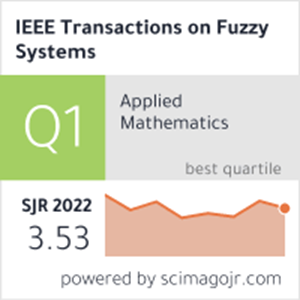具有工业应用的复杂系统的最优输入激励广义集成模糊- mpc
IF 11.9
1区 计算机科学
Q1 COMPUTER SCIENCE, ARTIFICIAL INTELLIGENCE
引用次数: 0
摘要
复杂系统经常受到不确定因素的影响,传统的固定模型控制方案难以实现高精度控制。数据驱动控制方法提供了一种解决方案,但由于运行数据激励不足,难以构建准确的模型。此外,历史模型与新条件之间的不匹配,加上新条件下有限的数据积累,降低了整个过程的操作性能。为了解决这些问题,本文提出了一种广义集成模糊模型预测控制框架。它将模糊控制的泛化能力与模型预测控制的精度相结合,保证了在任何条件下的高精度控制。具体而言,首先提出了一种由失配特征参数触发的策略切换机制,将原有的策略转换为模糊驱动的励磁控制方法,从而减轻了由于控制策略与复杂系统不匹配而导致的控制性能下降。然后,提出一种模糊控制特征提取方法,平衡模糊集激活,提高对未知条件的适应能力。针对数据激励不足的问题,提出了一种最优输入激励设计方法,实现了有效的控制。一旦积累了足够的数据,模型就切换到模型预测控制。以数据信息为导向,由失配特征参数触发的双重决策机制,有效保证了不确定条件下的高精度控制。数值实验表明,GIF-MPC方法可以保证在扰动和条件变化情况下的高精度控制。该解决方案还成功地部署在工业环境中,在全工况下验证了其出色的控制性能。本文章由计算机程序翻译,如有差异,请以英文原文为准。
A Generalized Integrated Fuzzy-MPC With Optimal Input Excitation for Complex Systems With Industrial Applications
Complex systems are frequently influenced by uncertain factors, making it difficult for traditional fixed-model control schemes to achieve high-precision control. Data-driven control methods offer a solution, but they face challenges in constructing accurate models due to insufficient excitation in operational data. Moreover, mismatches between historical models and new conditions coupled with limited data accumulation under new conditions reduces the operational performance throughout the entire process. To address these issues, this paper proposes a generalized integrated fuzzy model predictive control (GIF-MPC) framework. It combines the generalization capability of fuzzy control with the precision of model predictive control to ensure highprecision control under all conditions. Specifically, a strategy switching mechanism, triggered by a mismatch characteristic parameter is first proposed, which transitions the original strategy to a fuzzy-driven excitation control method, thereby mitigating the control performance degradation caused by the mismatch between control strategies and complex systems. Then, a fuzzy control feature extraction method is proposed to balance fuzzy set activation and improve adaptability to unknown conditions. Additionally, an optimal input excitation design method is proposed to tackle insufficient data excitation, enabling effective control. Once sufficient data is accumulated, the model switches to model predictive control. The dual decision mechanism guided by the data information and triggered by the mismatch characteristic parameter effectively ensures high precision control under uncertainties. Numerical experiments demonstrate that the GIF-MPC method ensures high-precision control throughout disturbances and condition changes. The solution is also successfully deployed in an industrial setting, validating its excellent control performance under full operation conditions.
求助全文
通过发布文献求助,成功后即可免费获取论文全文。
去求助
来源期刊

IEEE Transactions on Fuzzy Systems
工程技术-工程:电子与电气
CiteScore
20.50
自引率
13.40%
发文量
517
审稿时长
3.0 months
期刊介绍:
The IEEE Transactions on Fuzzy Systems is a scholarly journal that focuses on the theory, design, and application of fuzzy systems. It aims to publish high-quality technical papers that contribute significant technical knowledge and exploratory developments in the field of fuzzy systems. The journal particularly emphasizes engineering systems and scientific applications. In addition to research articles, the Transactions also includes a letters section featuring current information, comments, and rebuttals related to published papers.
 求助内容:
求助内容: 应助结果提醒方式:
应助结果提醒方式:


